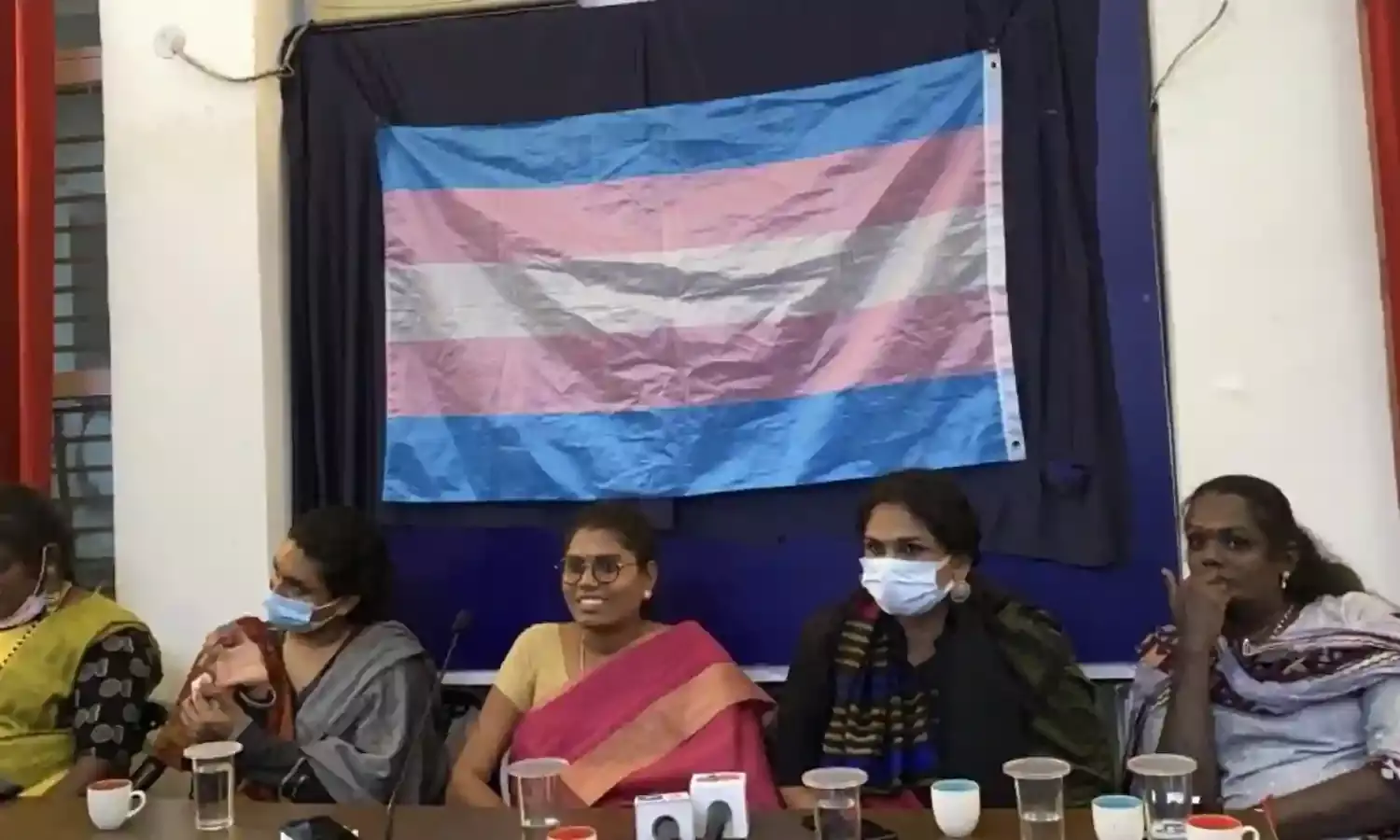'We Don't Want your Sympathy,' Transgender Persons Oppose Reservation under OBC Category
'This is unconstitutional, illegal and unethical'

Members of the trans gender community gathered in Delhi from all over India on Wednesday to demand horizontal reservation from the Union government and oppose the common categorisation of trans persons in the Other Backward Class (OBC) Category.
The Economic Times reported that the Ministry of Social Justice and Empowerment recently sought the National Commission for Backward Classes’s advice on the issue of including transgender people in the OBC list.
“This is unconstitutional, illegal and unethical,” said Kanmani Ray, one of the members of the Trans Now Collective. “All women or persons with disability are not classified under the OBC category. Why should all trans persons be classified under one OBC category?” she added.
The move comes after the landmark NALSA vs. Union of India judgment in 2014 where the Supreme Court recognised the constitutional rights of equality, liberty, and dignity for transgender persons and noted that they should receive affirmative action, including reservations in public employment and education.
In December 2014, Rajya Sabha MP from the DMK, Tiruchi Siva, piloted a private member’s bill, which provided for reservation in employment and education for the transgender and intersex persons and was passed by the Rajya Sabha unanimously.
The bill proposed a scheme of horizontal reservation for transgender and intersex persons – which meant that these persons would get benefits as a separate class within already existing reservation slabs, similar to the way reservation exists for women or people with disabilities.
The subsequent Transgender Persons (Protection of Rights) Bill 2016, which did away with many progressive provisions in the private member’s bill did not mention reservation. This was met with wide spread protests from transgender communities.
Now, the Union Government’s move to add transgender persons to the list of Other Backward Classes (OBCs) will amount to providing transgender persons ‘vertical reservations’ within the OBC category, and be detrimental to large sections of the community. “As transgender persons and community leaders, we believe that this will be a retrograde decision that will adversely affect many transgender persons from marginalised sections and deny them opportunities and benefits,” according to a statement by Trans Right Now collective.
This neglect of caste operating within the transgender and intersex communities can be detrimental for persons from these communities who belong to marginalised sections, because it refuses to acknowledge that transgender persons who are also Dalit or Adivasi face an added historical disadvantage because of their caste and tribe status as well as discrimination, oppression and marginalisation because of their gender identity, the statement further read.
“Vertical reservations will only benefit transgender persons with privilege and money. They will take up all the seats in colleges and education intuitions. I come from a place of privilege and so my experience is very different from a trans person coming from Schedule caste and Scheduled Tribe communities,” added Ray.
According to Dalit and Trans rights activist, Grace Banu, there is a lot of “discrimination under the rainbow umbrella” of queer community in India. “Upper class, upper caste, Savarna trans people have a massive privilege. They occupy all our spaces and hold power. There is no one to represent us,” she added.
Therefore, instead of pushing them into the OBC category, “Union government should provide transgender persons ‘horizontal reservation” -- as a separate category within already existing classes like SC, ST, OBC, like the reservation provided for women and persons with disabilities,” according to Ray and Banu. “Such an approach will account for the intersectional nature of the discrimination and bias that transgender and intersex persons face, and ensure benefits to the most marginalised persons who are being oppressed both on account of their caste or tribal identity, and their gender identity.
“Horizontal reservation will also ensure that transgender and intersex candidates have some seats truly reserved for them within these categories in education and employment. Only such a mechanism of horizontal reservations will truly guarantee the rights of transgender persons as guaranteed under the Constitution of India,” they added.



